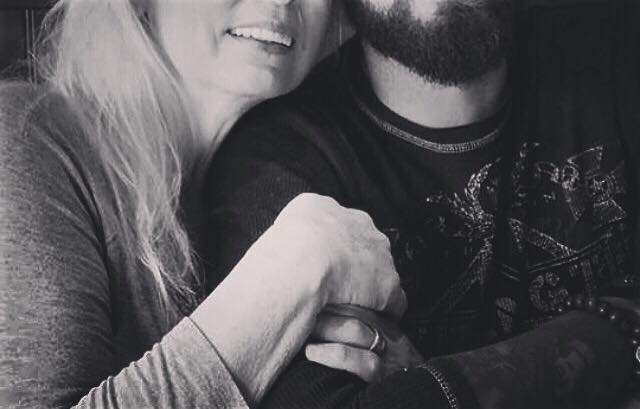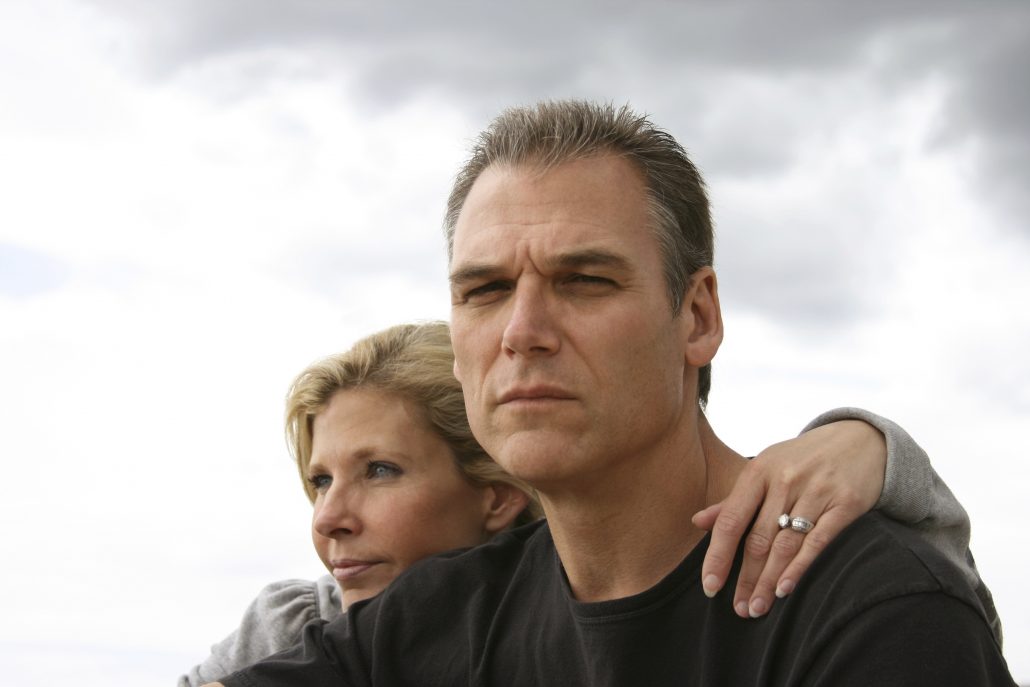Dear Mom, My Addiction Was Never Your Fault

I’ve decided to touch on something that means more to me than there are words to describe it.
That is, my mom.
To me, the word mom is synonymous with every great quality I’ve ever known or could hope to have. My mother is fiercely loyal, devoted and courageous. She is also the most compassionate, considerate and loving person I know. She sacrificed all to give me a chance at having a full and amazing life, and she continues to do so. My mother gives her life to nurturing the ones she loves spiritually, mentoring me emotionally, and ensuring that I know, even when I did not believe in myself, that someone does.
Recently I was faced with a conversation about mothers and I was suddenly startled at a realization; in my addiction I put my mother through so much more than I ever gave credit, and she was still my hero. There is something to be said about the way a mom will care acutely and unconditionally, and my mom is a champion of the heart. I think it gives me even more reason to talk about this.
Sharing the Burden
Of course a mother is intrinsically protective. The lioness guards her cubs with ferocity; passionately committed to safeguarding her child. Of course we all become handfuls sooner rather than later, but thankfully mom is always there, trying to keep us alive and in check. My mom poured her heart into trying to teach me to be a man of integrity. So naturally, when I fell, her heart sank with me.
I will never forget having to tell my mom I was going back to drug rehab for the second time in a year. It was not the first time we had cried together, but it was different. The pain and fear in her face, the look of resignation and acceptance. That was all hard enough, but her words made it so much harder. She said:
“What didn’t I do right? Why have I failed my only son?”
She wasn’t asking me, she was praying out loud. It broke me. Even now, almost 4 years sober, reading those words makes my chest heavy. Those words really emphasize the idea that many parents of addicts will try and take responsibility for their children’s addictions.
Many parents have a habit of trying to carry the weight of their children’s burdens for them. They see their kids as reflections of themselves and their own actions. Just as they delight in the child’s every success, not matter how trivial it may seem, they also embrace the pain of their child’s mistakes. Thus, they frequently try to shoulder some of the accountability. They ask things like,
What if I had showed them more affection?
Was I too affectionate?
What if I was too tough?
Was I not tough enough?
How could I have done better?
When a child gets in trouble, or even sometimes when they become very sick, some parents want to assume responsibility for it all. They take on guilt and blame that doesn’t necessarily belong to them. I was both sick and in a world of trouble and my mom didn’t want me to do it alone.
My mom always believed in sharing the burden with anything I struggled through. She was trying to take as much of it as she could because she could see how hopeless I really was. My mom did not yell at me or ridicule me; she just wanted to protect me… even from myself. After years of hiding the truth and taking advantage of the kindness of her and my family, she never stopped trying to keep me safe.
Placing the Blame
Some might say (and I’m sure a few of my aunts and uncles do) that my mother would defend me to a fault. At first she wanted to believe it was the people I hung out with and the things they convinced me to do. Then, her focus turned on her. I could read it on her face; running through the last 24 years trying to figure out what had gone wrong and how she could have stopped it… asking herself if she might still be able to say something that fixed it.
Sure, there is some rationale to the concept that childhood trauma and emotional baggage can contribute to stress and depression, which can help inspire or influence substance abuse. But these factors are not guarantees or requirements. Neither are they the whole picture.
To put it simply… blaming a parent for a child’s addiction is like blaming a stop sign for speeding ticket.
In co-dependent relationships parents and children tend to get so used to sharing the burden that the blame naturally comes with it. Part of being a parent of someone recovering from addiction means you will eventually need to become comfortable with setting boundaries. For the co-dependent parent/child this can be an incredibly difficult thing to do, but in the long run it can alleviate unjustified guilt.
We would like to offer you the FREE GIFT of a checklist to help decipher if you are helping or hurting a loved one who is struggling with addiction.
And as much as my mom wanted to protect me, love me and save me… it wasn’t her responsibility to fix me either.
Never Your Fault
This is important for ALL parents who end up in this position to understand- your child’s addiction is NEVER your fault.
People do not become addicts because their home life was tough. We don’t become addicts because we think we are unappreciated, unloved or just misunderstood. There is a lot more to how people become addicted than their relationships with their parents, and it’s not just the drugs. Addiction is not something we decide to have; it is something that happens with the right combination of genetics, environment and repeated behaviors.
A parent may provide their child with the greatest of all privileges, opportunities and support, but that doesn’t guarantee they won’t become addicted to substances. Kids can also grow up in a broken home with addicted parents and never use drugs in their lives. You could teach your kids very empowering and stable values, but it doesn’t mean that they have a 0% chance of ever trying something that might change them.
The science of addiction credits a genetic predisposition that combines with a specific environment and a specific set of behaviors. It is a perfect storm that is unpredictable in many ways, because the specific ingredients of the addiction formula are exclusively unique to each individual. It isn’t anyone’s fault, and it definitely isn’t a parents.
Dear Mom
To my mom…
Your love is the thing that kept me alive long enough to get here, so you should never question whether or not it was good enough. The problem wasn’t where I grew up, or the friends I had, and it definitely wasn’t how you raised me.
I was looking for a piece of myself I hadn’t had time to grow into. It was the piece I didn’t know how to look for in a healthy way, but you could not show me because no one can teach us but ourselves. Maybe the experience of looking itself is actually how we find it. Drugs and alcohol were a distraction from not having the answer to a much deeper question.
Mom, every loving and kind part of me came from you. You are one of the most powerful and influential women in my life. Still, the truth is my addiction was never up to you. I don’t say this to undermine your impact as a mother; it is to remind you that we are individuals, and that you have always done the best you could through every adversity. One day I pray I can be half the parent you are. I love you, and I only know what love truly means because of you.
To all mothers of addicts…
You are some of the most courageous and powerful women on the planet. It comes with the territory of bringing life into the world I guess. I can’t tell you how many other momma’s boys and mini-moms I’ve met in the recovery community. Even if your child is still struggling, always remember your strength and compassion. Always remember it is not your fault. You are amazing, and we are better because of you. Don’t give up.


